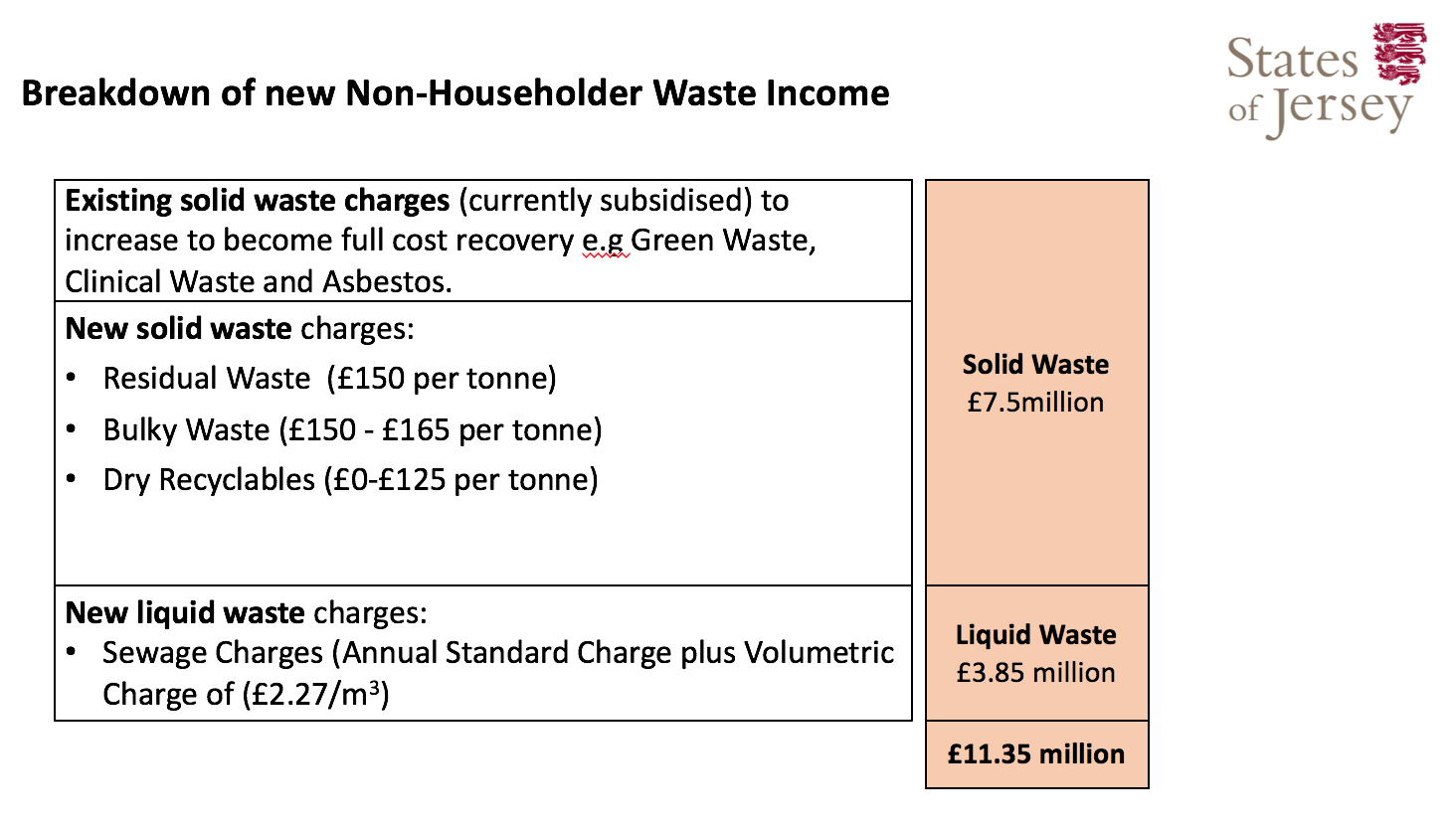
Ministers are locked on a collision course with local businesses over plans to charge them for getting rid of waste.
Yesterday, the Infrastucture Department published more details on the controversial plans - with local business groups immediately expressing their "grave concern", and warning the new charges would cost jobs, and derail plans to rebuild tourism.
The States agreed in principle to the introduction of solid and liquid waste charges for businesses last September and now the Department for Infrastructure has released the details of how they plan to bring them in, from 2018.
They say their budget is being reduced by £18.85 million, which they plan to make up through savings of £7.5million, and new waste charges to plug the remaining £11.35million.
Those charges will be split into two: solid waste charges and liquid waste charges:

DfI argues the charges are environmentally friendly and in line with Guernsey and other countries.
John Rogers, Chief Officer of the DfI said: “I think we’ve got to get ourselves in step with everybody else.”
“We do need to start charging for the services we provide – which are fantastic- but they need to be paid for and businesses need to pay their fair proportion.”
“Any western society charges for waste and what it does in charging for waste it actually helps people change their behaviour and our environmental message as an Island has got to improve because the environment is why people come here.”
Infrastructure Minister, Deputy Eddie Noel added:
“We have used knowledge and experience gained from other places where waste charges have been introduced to help us find the right systems of charging for Jersey. It is still very important to discuss the proposals with businesses and help them to understand how charging would work and to help ease in the introduction of waste charges and listen to any issues they may have.”
That is not going to be an easy conversation. Straight after the DfL published its plans, the Chamber of Commerce was first to hit back, calling them, "...of grave concern for the Chamber.”
“The negative effects of this new Tax cannot be underestimated. All businesses will be impacted and there is a very real threat that hotels will close, jobs will be lost and the far-reaching consequences of introducing such a Tax will undoubtedly undermine the Visit Jersey target of attracting 1 million visitors by 2030.”
Businesses will be charged more for the disposal of 'bulky waste'.
They went on to accuse the DfL of trying to, “...disguise this new tax as an environmental initiative.”
“This message is confusing. Is Jersey’s government genuinely concerned about the environment and prioritising green initiatives? Or are they looking for an easy Tax option to raise money for capital projects?”
“Businesses already manage their water usage, take environmental responsibility seriously and contribute to waste disposal through parish rates. While the States may think this additional Tax can be passed on and absorbed by the consumer, this simply isn’t the case.”
Chamber's concerns were soon echoed by the Jersey Hospitality Association who said the charges would have a “significant impact:”
“In high season businesses need to maximise their revenues to cover the quiet or closed periods – ensuring rooms are filled and restaurants running to full capacity. Most wastage will be created during this period due to the increased volume, any profit generated will be impacted to pay for additional wastage charges.”

Pictured: Fiona Kerley, Jersey Hospitality Association President
“The JHA understand the reasons outlined for the introduction of a wastage charge. However, due to the nature of how the sector operates feels that it is yet another charge to burden these businesses who are just returning to growth following years of decline.”
“The industry is experiencing the green shoots of Tourism, without careful consideration of the impact this wastage charge will have, some businesses in the sector may leave. We are keen to continue engagement with the Dfi to understand the timescale and plans for implementation.”
Comments
Comments on this story express the views of the commentator only, not Bailiwick Publishing. We are unable to guarantee the accuracy of any of those comments.